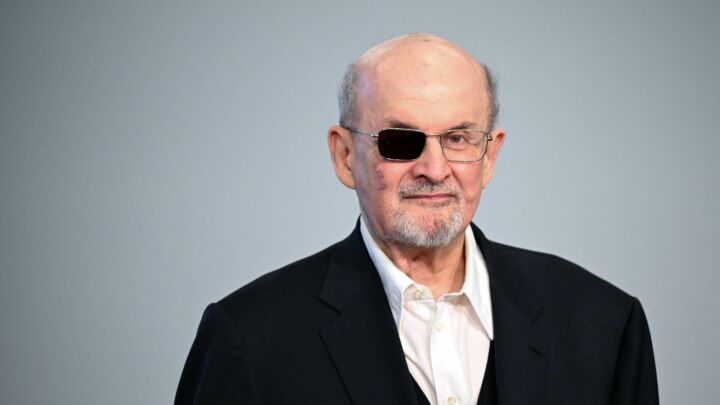When did ‘hanging around’ become a social problem?
From the 'Barry Manilow Method' to the screeching Mosquito: bizarre ways the British authorities are trying to keep kids off the streets this summer.

Police are on high alert across the country. Councillors and police forces have wracked their brains for new ways of dealing with the annual threat to national security. No, not terrorists in this instance, but kids hanging around on street corners.
The summer holidays are cue for a raft of measures to tackle youths’ bad behaviour. Police prepare for groups of young people out on the streets as if for a national emergency. This year, Home Office minister Tony McNulty announced £500,000 in grants for 10 local areas to crack down on teenage criminal damage. Discipline measures range from the heavy-handed – including curfews and dispersal orders – to the frankly bizarre.
The Local Government Association (LGA) has compiled a list of naff songs for councils to play in trouble spots in order to keep youths at bay – including Lionel Richie’s ‘Hello’ and St Winifred’s School Choir’s ‘There’s No One Quite Like Grandma’ (1). Apparently the Home Office is monitoring the scheme carefully. This policy has been copied from Sydney, where it is known as the ‘Manilow Method’ (after the king of naff, Barry Manilow), and has precursors in what we might call the ‘Mozart Method’, which was first deployed in Canadian train stations and from 2004 onwards was adopted by British shops (such as Co-op) and train stations (such as Tyne and Wear Metro).
Another new technique for dispersing youths is the Mosquito, a machine that emits a high-pitched noise only audible to teenage ears. Adults walk by unmolested, but youngsters apparently find the device unbearable and can’t stand to be near it for long. The Mosquito, currently being trialled in Somerset, makes a noise that carries over 20 metres or so, and which to adults registers as a kind of faint buzz. To people under 20, however, it can be so piercing that they simply cannot remain in earshot. The Mosquito will literally scream children off the streets (2).
These bizarre attempts at crowd control provide a snapshot of adult unease about young people. Teenagers are treated almost as another species, immune to reasoning and social sanction. Just as cattle are directed with electric shocks, or cats are put off with pepper dust, so teenagers are prodded with Manilow, Mozart or the Mosquito. ‘Make them go away’ is the only thought here.
Of course, bored teenagers do get up to no good, as I’m sure even council officials remember from their own childhoods. But this isn’t just about teenagers committing crimes: it’s also about them just being there. Before he was diverted into dealing with terror alerts, home secretary John Reid was calling on councils to tackle the national problem of ‘teenagers hanging around street corners’. Apparently unsupervised young people are in themselves a social problem.
Councils across Britain are using curfews (kids have to be home by 9pm), dispersal orders (to break up a group of young people), and the power to march a youth home if they suspect he or she is up to no good. In 2005, several British towns drafted in the army to patrol the streets at night – a senior Ministry of Defence official said the presence of troops would ‘deter bad behaviour’ from youths. Police in Weston-super-Mare have been shining bright halogen lights from helicopters on to youths gathered in parks and other public places. The light temporarily blinds them, and is intended to ‘move them on’, in the words of one Weston police officer (3).
Some have said that these measures victimise young people. Certainly, curfews and dispersal orders are what you might normally expect from a country in a state of siege or under a dictatorship, rather than for summer nights in British towns and cities. But the Manilow Method is hardly General Pinochet. Instead, these attempts at discipline speak of paranoid adults unable to talk to kids or win them over. Adults are behaving like social inadequates rather than strong-arm dictators.
Low-level misdemeanours, which in the past might have been sorted out with a few harsh words or a clip around the ear, now require battalions of ‘anti-social behaviour coordinators’, police officers and other assorted officials. Minor annoyances have become the focus for special campaigns, with defined procedures and funding windows.
This summer, prime minister Tony Blair’s ‘Respect Task Force’ is focusing on the problem of miniature motorbikes (‘mini-motos’), and has given £200,000 in grants to 28 local areas – apparently mini-moto hotspots – to carry out ‘targeted enforcement’ (4). The task force produced a guide informing teenagers of correct mini-moto use (‘DON’T break the law by driving your mini-moto on roads, pavements, beaches or in parks’; ‘DO drive your mini-moto on a legal site’), and suggests measures for councils to take (including ‘Run anti-social behaviour awareness days with schools, and incorporate mini-moto messages as part of the work’, and ‘Use diversionary activities such as directing young people into mechanical and maintenance courses to channel their energy into a legitimate activity’).
Ball games are closely regulated, too, with the rights and obligations of both sides carefully laid out. Welyn Hatfield Borough Council provides a set of guidelines for ball games, which includes ‘use only light, plastic, air-filled balls’, ‘do not [play] after seven o’clock at night’, and ‘have parental supervision on a rota basis if there are safety concerns’. A Northern Ireland authority informs adults that, ‘If a child throws a ball into your property, you should either hand it back or allow it to be collected’, but also informs them of their rights: ‘It is illegal to play football or any other game on a public road or footpath to the annoyance of another user. It may be worth reporting this to the police if children are causing annoyance by playing games in the street.’
Police authorities carry out ‘special operations’ against groups of young people who are engaged in such activities as hanging around drinking in the park. They then share intelligence with other authorities, giving each other tips on techniques for getting the cans of Strongbow off the youngsters.
One example of inter-agency collaboration highlighted on the government website Together.gov.uk came from Lliswerry in Gwent, where ‘a large group of young people gathered in the summer to drink’. The case was reported as if they had busted a Serbian drug smuggling ring: ‘Accredited wardens took the names and addresses of four young people seen with alcohol and the young people then gave the wardens information about a shop that regularly sold alcohol to under-18s. This information was passed on to the police and action was taken against the shop owner.’
Even that wholesome game of hopscotch has become a concern. West Midlands Police community support officers asked parents to remove chalk markings from the street, after receiving complaints and reports of ‘anti-social behaviour’. A BBC News report noted gravely: ‘Several children were involved in the games resulting in several markings on the pavement.’
As the schools prepare to reopen, no doubt police forces are breathing a collective sigh of relief. Crisis over – at least until next year.
Josie Appleton is coordinator of the Manifesto Club.
(1) Matthew Norman, London Evening Standard, 12 June 2006
(2) A pain in the ear, Brendan O’Neill, New Statesman, 7 August 2006
(3) A pain in the ear, Brendan O’Neill, New Statesman, 7 August 2006
(4) See Mini-motos: from fad to panic in record time, by Rob Lyons
To enquire about republishing spiked’s content, a right to reply or to request a correction, please contact the managing editor, Viv Regan.







Comments
Want to join the conversation?
Only spiked supporters and patrons, who donate regularly to us, can comment on our articles.